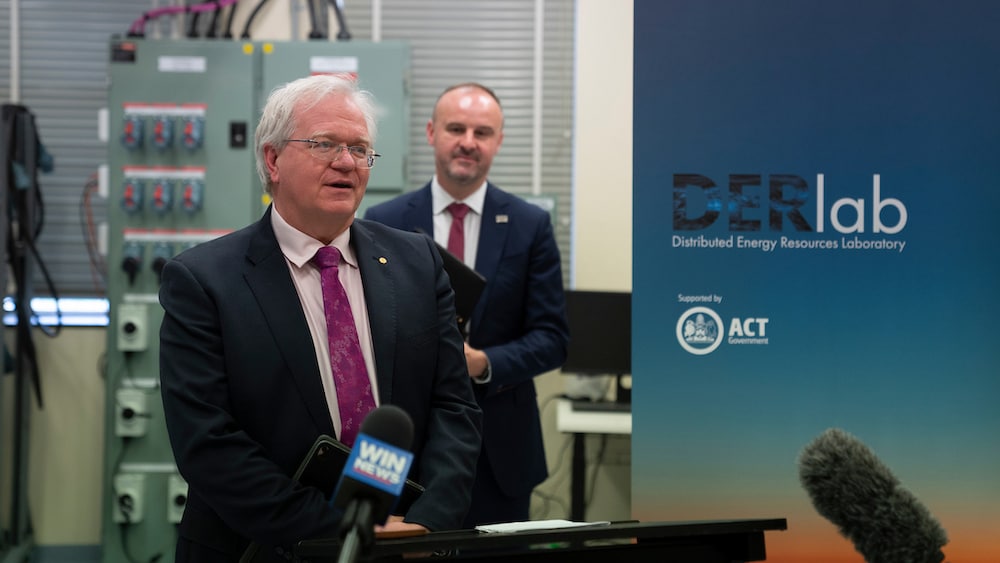Australia could be a renewable energy superpower, said Vice-Chancellor Brian Schmidt, speaking at the opening of the Australian National University’s new scientific research lab on Tuesday 13 July.
“[This] lab will create an opportunity out of the challenges of climate change,” Professor Schmidt said. “It is an opportunity for Australia to create a huge new industry … [worth] billions upon billions of dollars of industry in the future.”
He predicted that Australia would move away from large, centralised fossil fuel power generators towards a decentralised grid consisting of vast arrays of distributed renewable energy assets – “bits and pieces everywhere coming together”.
Australia was overtaking Germany to have the most decentralised network in the world, Professor Schmidt said. It already led the world per capita in the uptake of photovoltaic solar (PV); more than 2.5 million rooftops hosted solar panels.
Although Australia was slow to transition away from carbon, nevertheless Professor Schmidt believed Australia could decarbonise its economy better and more cheaply than any other developed economy.
“That means we’re going to have access to the cheapest renewable electricity in the world,” he said. “That creates an opportunity for all sorts of industries that will help Australia be prosperous in the decades to come.
“We have an opportunity here to not just cope, but actually to be leading and to economically benefit in ways that other countries simply will not.”
But time was running out. Professor Schmidt and 125 other Nobel Laureates had recently called on all G7 leaders urging them to take urgent action on climate change.
“Humanity is taking colossal risks with our common futures,” Professor Schmidt warned. “Societies risk large-scale irreversible impacts to our people, to our economies, our infrastructure, and of course the environment we all cohabitate.”
In his native North America, extreme heat – more than 54℃ in Death Valley (the hottest temperature ever recorded), 49.6℃ in Canada – had put pressure on the electricity system. There had been power outages and blackouts throughout the Pacific Northwest as people used air conditioners to escape the heat. And, of course, Australia had experienced the 2019–2020 summer bushfires.
“Transforming the electricity system is a vital first step to lessening the impacts of climate change and increasing extreme weather events by ultimately lowering the trajectory of CO2 in the atmosphere,” Professor Schmidt said.
“Now more than ever, Australia must design an energy system fit for the 21st century.”
For more news:



